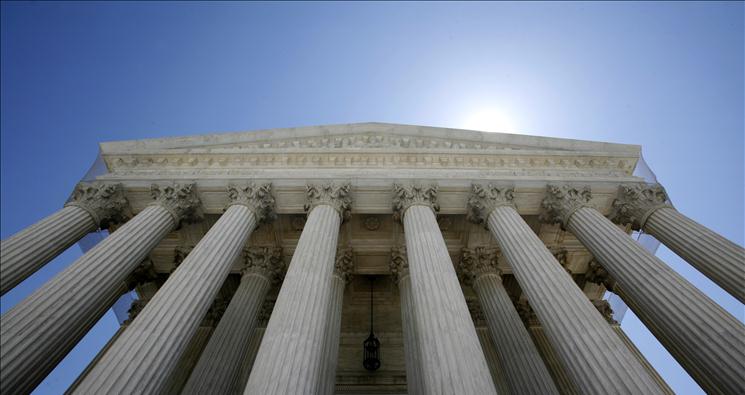ACLJ Files Brief with U.S. Supreme Court in HHS Mandate Challenge
Today, the ACLJ filed an amicus brief with the U.S. Supreme Court in support of a family-owned business challenging the HHS Mandate -- the federal regulation requiring non-exempt employers to pay for and provide abortifacient drugs, contraception, and sterilization in employee health plans, or pay ruinous financial penalties. The case is Autocam v. Sebelius.
Our brief supports the petition of the Kennedy family and the companies they own and control that asks the Supreme Court to review their challenge against the Mandate under the Religious Freedom Restoration Act (“RFRA”).
Like other employers who oppose the Mandate, including employers represented by the ACLJ, the Kennedys simply wish to manage their businesses in a manner consistent with their religious beliefs -- hardly a novel concept. As we point out in the brief:
Most, if not all, religious traditions teach that every dimension of one’s life, whether personal or public, in the home or in the workplace, should be lived in a manner consistent with one’s religious beliefs. For such people of faith, religion is not a matter of mere taste, preference, or inclination that can be set aside or ignored when materially advantageous to do so. It is a fundamental and guiding principle that shapes how they think, act, and live their lives in the world.
This is no less true when it comes to business, whether working for a company or owning and controlling one.
The religious beliefs at stake here are clear. As Catholics, the Kennedys believe that abortion, contraception, and sterilization are wrong, and that to pay for and provide such drugs and services in an employee health plan is unconscionable. The issue for the Kennedys, as well as other objecting employers, is not the right to interfere with anyone’s private choices, it’s the right not to be conscripted by the federal government into taking actions in violation of one’s religious beliefs and conscience.
After the district court refused to give the Kennedys a preliminary injunction so they could adhere to their religious beliefs during the pendency of their case, the family appealed to the Sixth Circuit Court of Appeals. (We filed an amicus brief in support of the Kennedys and their companies at this stage as well.)
The appeals court affirmed the decision of the trial court and, in doing so, concocted a “win-win” proposition for the government, where neither the corporation nor the owners of that corporation can challenge the Mandate under RFRA. The owners cannot bring the RFRA claim, according to the Sixth Circuit, because the owners are legally distinct from the corporation and are unharmed by the Mandate; and the corporation itself cannot bring the claim, because a corporation cannot exercise religion under RFRA. In other words, “heads, the government wins; tails, everyone else loses.”
As we point out in the brief, this line of logic, left undisturbed, will lead to disastrous consequences for religious freedom in this country:
. . . a shop owned by Seventh Day Adventists that does not open on Saturday for religious reasons would have to comply with a law requiring businesses to remain open seven days a week. A deli run by a Jewish family that does not sell pork for religious reasons would have to comply with a regulation that requires businesses to sell pork. A medical practice operated by Catholics who do not perform abortions for religious reasons would be forced to do so by a law requiring all OB/GYN medical practices to offer abortion services. No court would be able to reach the merits of any religious freedom claim brought by these or similar parties.
Joining the ACLJ’s amicus brief are the family business owners for whom we have obtained preliminary injunctions in seven separate legal actions, including Frank O’Brien, the first for-profit employer to challenge the Mandate. Also joining the brief as “friends of the court” are Robert and Jacquelyn Gallagher, owners of Good Will Publishers in North Carolina, which publishes Bibles and works of Catholic spirituality through its St. Benedict Press.
The petition for review filed by the Kennedys and their businesses is the third one now pending before the Supreme Court. Which of these cases the Court will ultimately choose to review remains to be seen, but one thing is clear: because the lower courts are deeply divided over the issue of religious free exercise in the commercial and corporate contexts, the Supreme Court will take up at least one of them.
No matter which of the cases the Court decides to review, we will file additional briefing in that case and provide you with the information you need to know as that case progresses. There is no doubt about it: a decision from the Supreme Court on the HHS Mandate will be one of the most important and consequential ever to be handed down by the high court.
